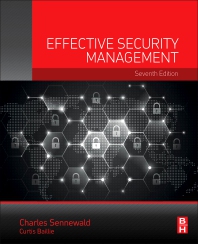Fifth Annual Study Finds Young Adults' Interest in Cybersecurity Careers Stagnant

An annual survey commissioned by Raytheon Intelligence, Information and Services, Forcepoint and the National Cyber Security Alliance (NCSA) revealed that despite increased awareness of what a career in cybersecurity might look like, millennials remain unprepared for and uninterested in pursuing a career in the field.
The fifth annual study, Securing Our Future: Cybersecurity and the Millennial Workforce, captures alarming trends among millennials including riskier online behaviors today than in 2013, despite the known consequences.
Additionally, the survey showed the dominant share (43 percent) of survey respondents believe the final outcome of the 2016 U.S. presidential election was influenced by cyber attacks. These findings echo national sentiments as a recent string of large-scale data breaches has shaken the public's confidence in the security of critical information and infrastructure.
"The demand for skilled cyber talent has become a national security issue," said Dave Wajsgras, president of Raytheon's Intelligence, Information and Services business. "While great strides have been made to increase millennial awareness in the cybersecurity profession, there is still work to be done."
Key findings from the study include:
-
Cybersecurity Awareness:
- Thirty-four percent of U.S. survey respondents (37 percent globally) said a teacher discussed cybersecurity with them as a career choice. This percentage has nearly tripled since 2013, when only 13 percent of U.S. respondents said a career in cyber had been mentioned to them by a teacher, guidance or career counselor
- Fifty-one percent of U.S. respondents (52 percent globally) say they know the typical range of responsibilities and job tasks involved in the cybersecurity profession, up from 37 percent in the U.S. in 2014
- Globally, 46 percent of men have met or known someone studying cybersecurity at the high school, university or graduate level compared to only 26 percent of women
- Seventy-one percent of young adults surveyed think it's their own responsibility to keep themselves secure online rather than relying on the government, commercial companies or other individuals
-
Low Interest:
- Globally, only 38 percent of millennials were more willing to consider a career in cybersecurity than a year ago which is unchanged from last year
-
Carefree Behavior:
- Globally, 63 percent click on links even if they aren't sure the source of the link is legitimate
- The proportion of U.S. young adults who share passwords with non-family members nearly doubled from 23 percent in 2013 to 39 percent in 2017 (42 percent globally this year)
- Seventy-four percent reported using unsecured public Wi-Fi today in the U.S. as a matter of convenience even though the security risks are well documented, up from 66 percent in 2013
"We need to be providing the tools for this generation to take action and embrace safe online practices," said Michael Kaiser, executive director of the National Cyber Security Alliance. "We also need strong role models – including parents, teachers, colleagues, and friends – to help improve cyber practices nationwide and encourage the pursuit of cybersecurity careers among young adults."
Looking for a reprint of this article?
From high-res PDFs to custom plaques, order your copy today!







